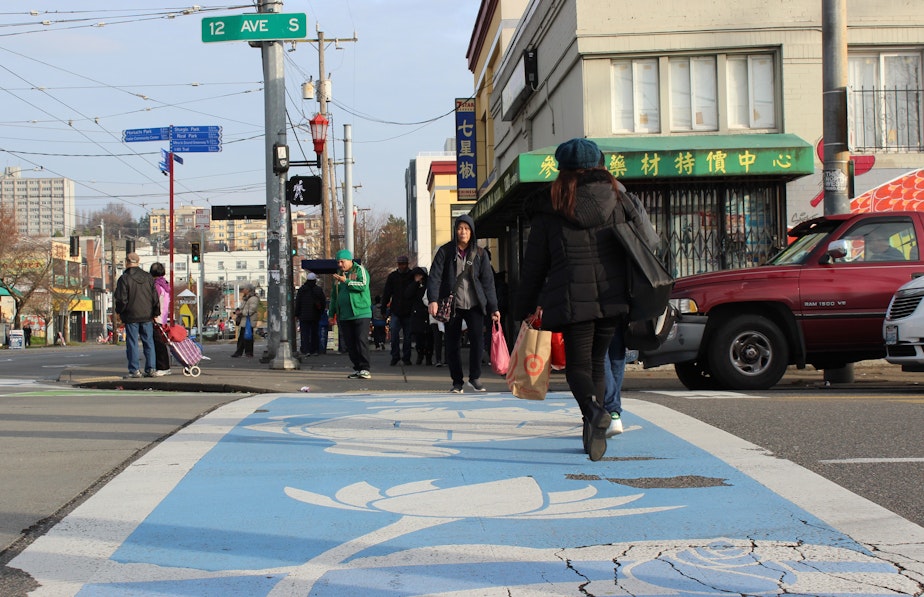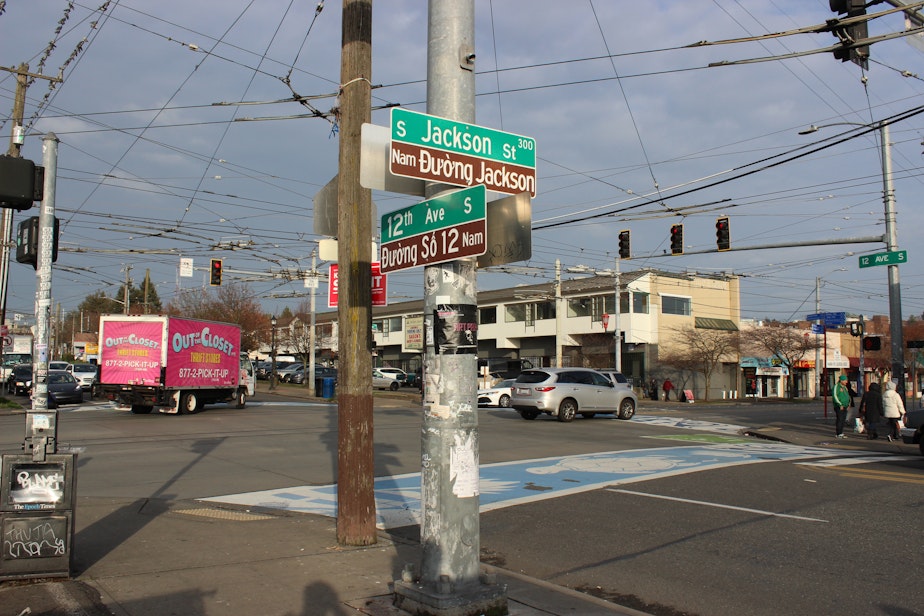Seattle's Little Saigon is keeping its culture alive with or without 'real commitment' from officials

Seattle's Little Saigon exemplifies the devastating effects of the Covid-19 pandemic in many ways.
Windows are boarded up along busy streets. Some businesses are struggling to stay open, while others have folded under the economic strain. And violent crime is up as it has been across the city in 2021.
Quynh Pham says the neighborhood was neglected before the pandemic. And as before, the community is fighting for itself "because no one else" is.
“Our businesses are leaving. You can physically see it on the ground," she says. “They are at a place where they just cannot operate or even open their business in the morning. Our community members are too afraid to step out of their offices or their home to go visit their friends. My staff are terrified when they go do outreach and engagement with our community members.”
Pham is the executive director of Friends of Little Saigon, a nonprofit organization created to preserve the Vietnamese community's culture, businesses and history in Seattle.
Little Saigon was established in the Chinatown International District shortly after the fall of Saigon in 1975, bringing a wave of refugees to Washington state and especially to Seattle; it was here they found Asian grocery stores and other familiar parts of life, Pham says, so they set out to add a Vietnamese influence to the area.
Sponsored
Beloved Seattle businesses like Viet-Wah Supermarket and Phở Bắc were among the first to set the scene around the popular intersection of 12th Avenue South and South Jackson Street.
Pham says those establishments drew in people who were unfamiliar with Vietnamese culture and filled an important gap for those within.
"They are providing a resource that's affordable, but also, it's like aunties and uncles. They just are my community," she says. "They built the history and the culture here."
And they're keeping it alive with or without help from the city.
"We produce a plan that goes onto a website," she says of her talks with officials. "But what does that mean in terms of the actual physical resources and investment that comes out of that? There's no real commitment."

Sponsored
The Seattle Times editorial board recently described Little Saigon as "the Seattle neighborhood that government forgot," painting the picture of a once vibrant cultural hub that is now "beset with overflowing trash cans, litter, dirty sidewalks and open-air drug dealing."
The board notes reported aggravated assaults and burglaries are up in the entire Chinatown International District compared to 2019.
Just last week, Little Saigon business owner Nick Bui tallied up the financial toll for KOMO News.
“Within a little over a year, we’ve been broken into three times already,” he said, adding a broken window alone costs him about $1,500. "And during the pandemic for a restaurant, we are getting hit hard already. And with this extra cost and damages, it’s difficult for us to survive."
In short, as the Times editorial board puts it, "to walk [Little Saigon's] streets is to viscerally experience neglect."
Sponsored
Pham agrees — sort of.
She says development in the district came without a plan to maintain local businesses or to "incorporate any Vietnamese or Asian character into their projects."
The gentrification of Little Saigon has been "ridiculous" to Pham, who has played an active role in conversations with city officials about how to preserve the local culture.
"And we're working with them on it," she says of community leaders' ongoing efforts to get the city to invest in them. "But when it gets to the point of real, long-term, sustained support? That's really hard to come by. ... Many times, my meetings with our city leaders are just words. They don't result in many actions."
This is where her view of the neighborhood diverges from more gloomy takes, though.
Sponsored
"We have to work really hard as a community to push for those resources," and they are, she says.
The proof, she adds, is in the existence of groups like Friends of Little Saigon.
The group's offices are housed in the Little Saigon Creative, a community space where visitors can also find Hello Em, Seattle's first Vietnamese coffee roastery; when it opened in January, the South Seattle Emerald described lines down the block for Vietnamese favorites, like espresso with egg crème and Bánh mì sandwiches.
Co-owner Nghia Bui told the Emerald how the name — Hello Em — is a nod to the community and familial feel Pham describes.
Sponsored
"In Vietnam, ['hey em' is] something you say as a greeting to someone close to you," Bui told the Emerald. "It’s a blend between English and Vietnamese because that’s how we are. We are Vietnamese American.”
The Little Saigon Creative exhibits that blend on its walls, with a "visual history" of the neighborhood.
The Creative, like that shared history, reminds Pham what she believes is still possible for Little Saigon.
The neglect may be clear, but to her, so is the resiliency.
"Outside of these doors, you see some of the challenges," she says. "So, people forget the beauty and the vibrancy that this neighborhood used to be — or can be, if we contributed a little bit more."





